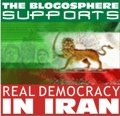A recent report released but the Pew Research Center on Global Attitudes has revealed waning support for economic globalisation in Europe and the USA, contrasted to Asia where support for globalisation is on the rise in the emerging economic giants of China and India. For some people this is easily explained, everything was fine when we locate manufacturing plants in Turkey or China, but not ok when the tables turn and Chinese and Middle Eastern interests buy into 'Western Interests'. The 'West' should be mature enough to realise that everything has costs and benefits. Check out John Ralston Saul , or Joseph Stiglitz for some meaningful insight into globalisation.
But perhaps the most interesting fact revealed by the report (for this blog at least) is the declining support for separation between church and state and an increased skepticism of democracy working in Turkey. The report indicates that this may just be a reflection of 'anti-western sentiment'. Both of these are causes for concern for Europe as well as Turkey, and if it is a reflection of anti-western sentiment, even more so. All too often Western countries just treat anti-western sentiment as an immutable fact of life as the air we breath. What Europe should be considering is what is causing this sentiment in the first place and what, if anything, could be done to resolve this perception. Turkey too, has to undergo some introspection and seriously decide how its future is going to look like.
Also, now is not the time for Europe to act like a spoilt schoolchild who takes his ball home just because he isn't winning the 'globalisation game', and instead it should take a more pro-active role in defining and shaping Globalisation without waiting for the US to take the lead. In so doing it can address both the concerns of its Member states, future and neighbouring states. In this way it can peel away that false divide that is West and East, in the same way it successfully peeled away the false divide between European Member states. A unique achievement. Hopefully, in this manner it can discover a unifying constant with Turkey that is in both regions interest. Of course in so doing, both sides have to understand that there are costs and benefits involved. But i believe the benefits of closer relations far outweigh the costs involved.
Subscribe to:
Post Comments (Atom)




4 comments:
Looks like that you are our man in Athens..))
Vassili . . . great article and commentary.
I hate to say it, but I take issue with Europe and EU being referred to as one and the same by default.
Europe will forever remain, but the political establishment or the unity of the EU will not, at least in my humble opinion.
And the Turks have to get it that being a member of the EU (a dying patient) is not a prerequisite for being European.
I see that the world will be dominated by one super power. And globalization will be 'encouraged' at the expense of the largeness of that oneness.
However, I see the US as absorbing Europe and naming it the United States of Eastern America in the not too distant future.
Europeans need to figure this out before time passes them by.
Interesting view Metin. I still see the EU as a work in progress. If it does become dominated by a more 'American' culture, well that would be the end result of its populace. Not that everything is wrong with America, i hope that we take the Good.
It's all good Vassili. After all, America is based on Euro and Christian-Judeo value system(s).
By the way, globalization and one world-ness is not a learn on the job type of thing. Europe would be better off if each of the identities would cherish their own beauty rather than a collective mess.
You can't just add any ingredient together and call it soup.
It has to be tasty also. And Turkey might be the salt it needs. Too much of it is harmful, but a little pinch will add to the senses.
Common senses that is . . .
Post a Comment